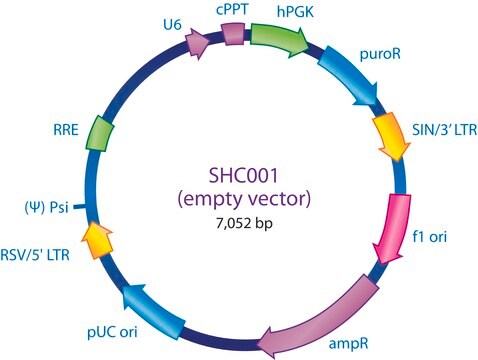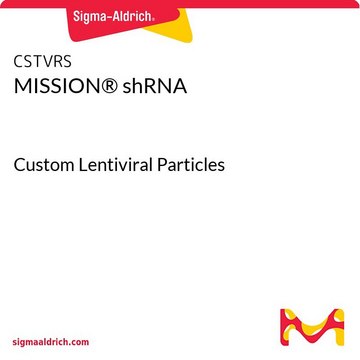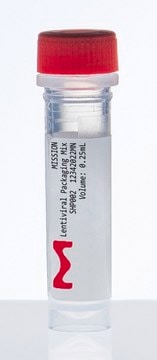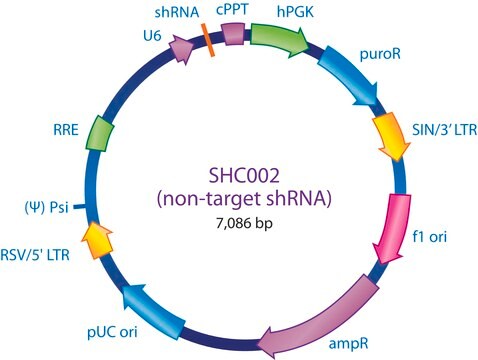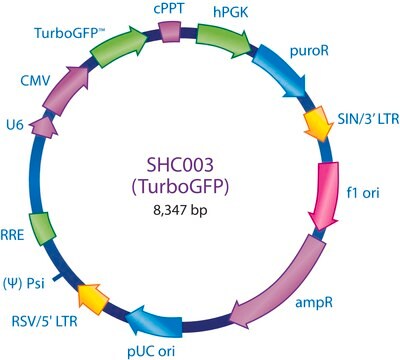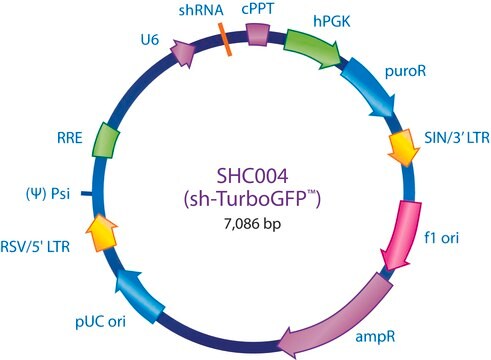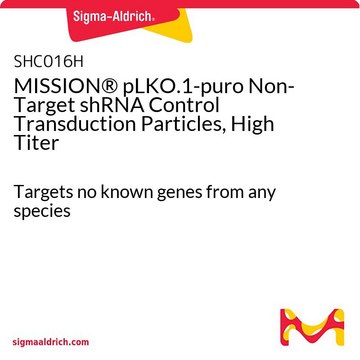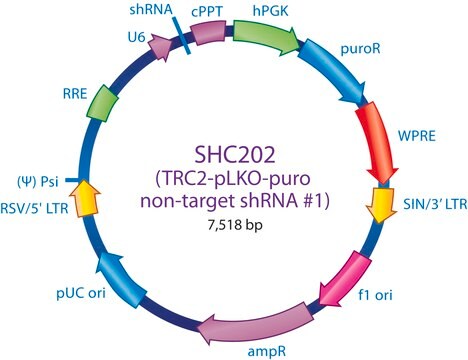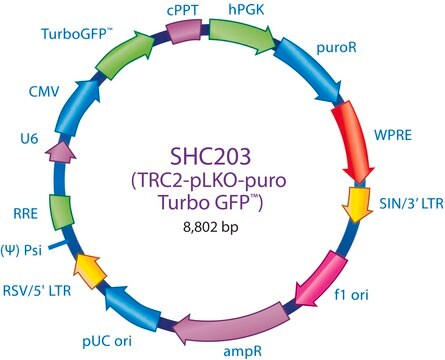SHCLNV
MISSION® shRNA
Lentiviral Particles
About This Item
Empfohlene Produkte
Qualitätsniveau
Methode(n)
capture ELISA: 106 VP/mL using p24
Versandbedingung
dry ice
Lagertemp.
−70°C
Suchen Sie nach ähnlichen Produkten? Aufrufen Leitfaden zum Produktvergleich
Allgemeine Beschreibung
Anwendung
- zur Transfektion und Transduktion
- zur Etablierung stabiler Zelllinien, die shRNA exprimieren
- zur Erzeugung der Alpha-Actinin-4 (ACTN4) Knockdown-Zelllinie
- zur Transduktion roher 264.7-Zellen
Sonstige Hinweise
Rechtliche Hinweise
Lagerklassenschlüssel
12 - Non Combustible Liquids
WGK
WGK 3
Flammpunkt (°F)
Not applicable
Flammpunkt (°C)
Not applicable
Analysenzertifikate (COA)
Suchen Sie nach Analysenzertifikate (COA), indem Sie die Lot-/Chargennummer des Produkts eingeben. Lot- und Chargennummern sind auf dem Produktetikett hinter den Wörtern ‘Lot’ oder ‘Batch’ (Lot oder Charge) zu finden.
Besitzen Sie dieses Produkt bereits?
In der Dokumentenbibliothek finden Sie die Dokumentation zu den Produkten, die Sie kürzlich erworben haben.
Kunden haben sich ebenfalls angesehen
Artikel
MISSION shRNA reduce the expression of specific target genes by targeting the specific mRNA therefore reducing the corresponding protein expression.
Our lentiviral vector systems are developed with enhanced safety features. Numerous precautions are in place in the design of our lentiviruses to prevent replication. Good handling practices are a must.
Successful targeting relies on optimizing key sensitive steps in the process, including lentiviral transduction. Below are some helpful handling and titration tips from our R&D lentiviral experts.
Protokolle
You are not alone designing successful CRISPR, RNAi, and ORF experiments. Sigma-Aldrich was the first company to commercially offer lentivirus versions of targeted genome modification technologies and has the expertise and commitment to support new generations of scientists.
FACS (Fluorescence-Activated Cell Sorting) provides a method for sorting a mixed population of cells into two or more groups, one cell at a time, based on the specific light scattering and fluorescence of each cell. This method provides fast, objective, and quantitative recording of fluorescent signals from individual cells.
Verwandter Inhalt
Find shRNAs for Individual Genes. Over 150,000 pre-cloned shRNA constructs targeting more than 15,000 human and 15,000 mouse genes.
Unser Team von Wissenschaftlern verfügt über Erfahrung in allen Forschungsbereichen einschließlich Life Science, Materialwissenschaften, chemischer Synthese, Chromatographie, Analytik und vielen mehr..
Setzen Sie sich mit dem technischen Dienst in Verbindung.
